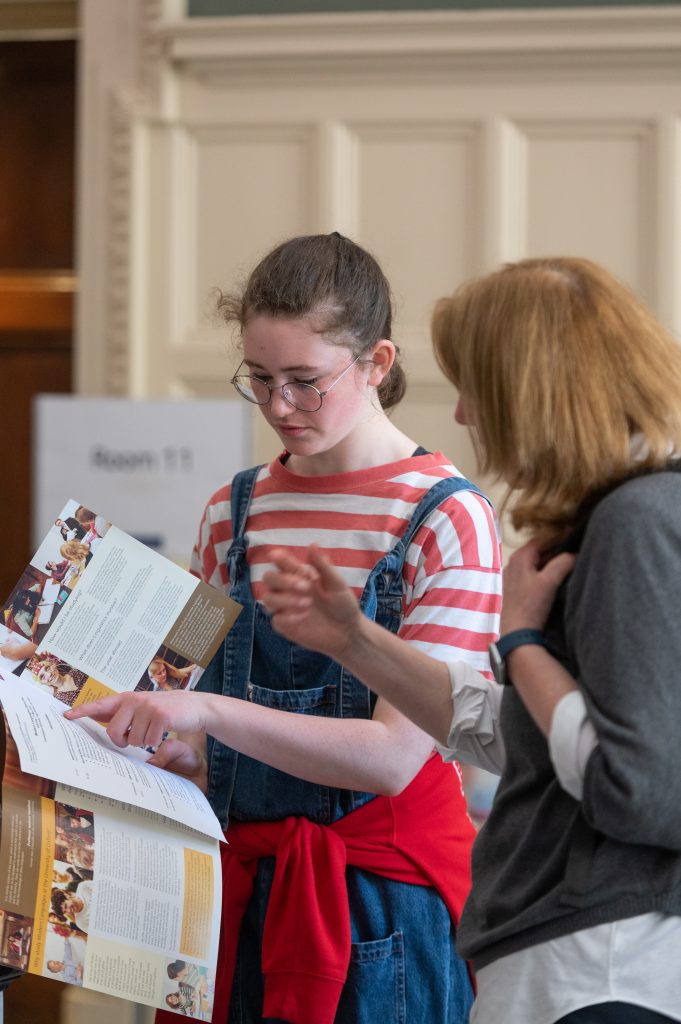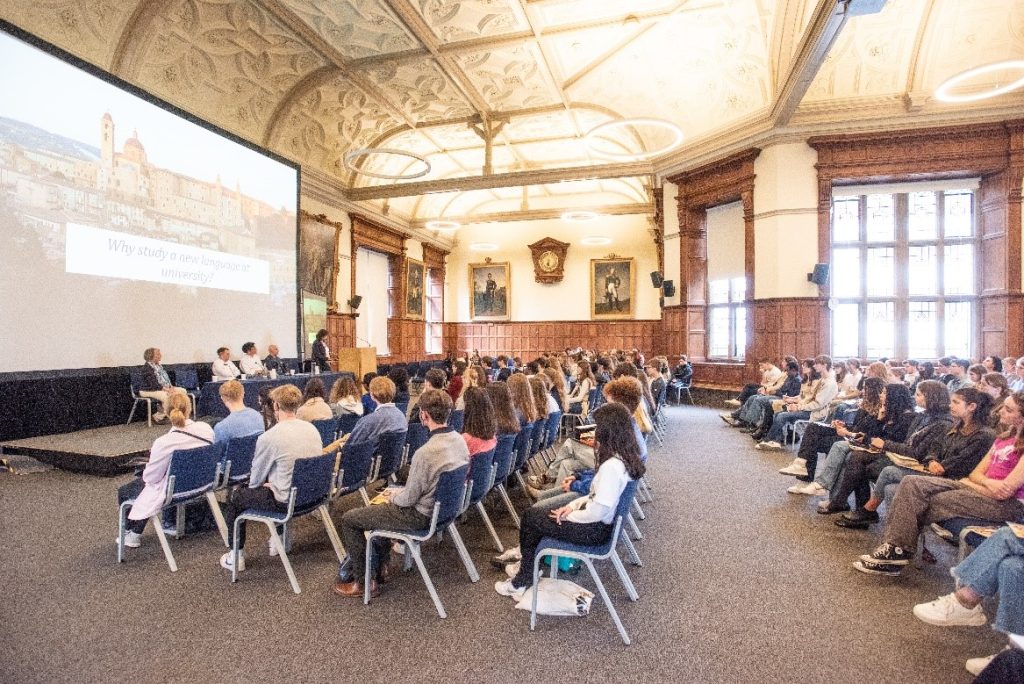The Faculty of Medieval and Modern Languages is delighted to be running its second Beginners’ Languages Taster Day in March 2025!
Alongside our usual Modern Languages Open Day (which will take place on Saturday 17th May), this year we will once again be holding an event dedicated to our beginners’ languages courses. This event offers students from UK secondary schools in Year 12 or equivalent an opportunity to gain greater insight into our beginners’ languages degree programmes at Oxford. Students in Year 11 who are starting to consider their options for university are also welcome to attend.
The Taster Day will take place on Saturday 8th March in our main Faculty teaching spaces – the Taylor Institution Library and 47 Wellington Square. After an information and Q&A session in the morning, students will have the chance to attend taster sessions in two of our beginners’ languages.

photo (c) John Cairns
The following languages will be represented at the Taster Day, with academics and current undergraduates present to provide further information about the course(s) and to answer students’ questions:
- German
- Portuguese
- Italian
- Russian
- Czech (with Slovak)
- Modern Greek
- Polish
Last year’s inaugural event received excellent feedback from prospective applicants and their companions:
- I really enjoyed the taster day, it was fascinating to learn some Russian and Italian, especially Russian as it was something I had never considered before. Everyone was friendly and it was extremely well organised. I loved it!
- The Q&A was really helpful and insightful. I didn’t think that I would enjoy today or get as much out of it as I did (I thought it would be really stuffy but it wasn’t). I think that a lot of my enjoyment was due to the planning of the day as well as how lovely and welcoming everyone who was there/helping was. Thank you for giving me this opportunity.
- An enjoyable day – which really opened up our daughter’s eyes to a Beginners Languages degree & the benefits of studying at Oxford University – thank you.
The provisional event programme for 2025 can be found here.
To register for the Taster Day, students should fill out this form by 12 noon on Friday 14th February so we know who to expect at the event. Please note that spaces will be allocated on a first-come, first-served basis, and the form will close once our maximum capacity has been reached.
We are also pleased to be able to help students who are in need of additional financial support with reasonable expenses such as travelling to and from Oxford for the event. There is a space to include this information in the registration form.
Studying a language from scratch at Oxford
Our beginners’ languages courses offer an exciting and rare opportunity for students to engage with a new language and culture for the first time, or to pick up languages they studied at GCSE. The courses are challenging yet rewarding, with many designed to bring students up to A-level standard within the first year. Therefore, we would love to welcome students who are strong linguists and/or who are looking for a new challenge at University to this event.
As well as alongside a post-A-level language, most of our beginners’ languages can be studied in conjunction with subjects from the Humanities such as English, History, Linguistics, or Philosophy, for which applicants do not need to be studying a language to A-level or equivalent. With this in mind, we would also welcome students of Humanities subjects who are interested in picking up a language at University.
For further inspiration and information, below are some links to content from our tutors and undergraduates about why taking a language from scratch is so worthwhile:
- Blog post – Why study Czech?
- Video – Branching Out: Picking up a language from scratch
- Video – Studying German for Beginners at Oxford:
Please get in touch with schools.liaison@mod-langs.ox.ac.uk with any questions.
We look forward to seeing you on 8th March!














